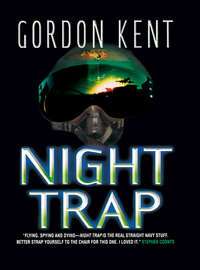
Полная версия
The Spoils of War
“What’s 1347.5?”
“How the hell should I know?”
Tel Aviv
“Light,” Alan said. He could see that a nude body was lying there and that there was shiny metal along one side of him, but he couldn’t see enough. Miriam was burrowing in her handbag and she came up with one that Alan recognized as of a type advertised in the pricier gun magazines—high-intensity, small size, big price.
The body was lying on a rolling litter, like a low gurney; it supplied the metallic reflection he’d seen. The damage to the man was sickening.
“Beaten,” Miriam said.
“Cause of death?”
“I’m not a doctor.” She was shining her very bright light on the eyes and prying one of them open; then she focused on the mashed lips, which she parted with a ballpoint pen so she could study the teeth. “Really bad,” she said. She pressed on the chest, but nothing happened. “I thought maybe water.”
“Torture.”
“Mmmm.”
They worked their way down to the feet, which, like the legs, were less damaged than the head and upper body. He pointed out two round marks on the left leg. “Cigarette.”
“Your guy?” she said.
He took the ID sheet that Dukas had faxed to the embassy. Two head shots, front and profile, were in the upper right corner, the size of passport photos. Faxed, smudged, they didn’t look like the battered mess on the table. Alan read down the sheet to Distinguishing Marks and said, “Two-inch tattoo of fouled anchor, left forearm.” He thought he had to explain it to her. “A fouled anchor is an anchor with a rope twisted around it, sort of. Two inches is about—five centimeters.”
She was holding the dead left arm. “Yes.”
“Surgical scar, right abdomen, appendectomy. About—four centimeters.”
“Yes, okay.”
“Three moles, prominent, smooth, dark brown, left side of chest, triangle pattern about—seven centimeters.”
She hung her head over the dead man’s chest, her light bright on his waxy skin, turned her head toward Alan and said, “Now aren’t you glad you came?” She dug into the big handbag, which she dropped on the gurney, shining the light into it, and pulled out a plastic phial and then a sterile packet and then a box big enough to have held half a dozen cigars. She took a swab from the packet and swabbed the inside of the dead man’s mouth and put it into the phial, then clipped hair from his head, put it into another phial, and unpacked a small ink pad. Alan figured she had an entire evidence kit in there.
“Won’t your forensics people do that?” he said.
“Mossad, darling, Mossad.”
Alan switched his light off and straightened, his back sore from bending. “How did somebody get a body in here?” Alan asked Mosher.
“Many people work here over the many years. Keys—” He made walking motions with his fingers.
“But you didn’t know the body was here?”
“Me?”
Oddly, Alan believed him. Mosher was a schlemiel, and probably a nebbish, too, and he knew he was being used, and he was scared.
“Do you—does anybody live on the facility?”
Mosher shook his head as if the idea disgusted him. “Where would they live? Some buildings don’t even have water. I live in Tel Aviv. Most of my people are IDF reservists. It’s nice duty—you go home to mama’s cooking.”
“You have a duty officer at night.”
“A petty officer.”
“Who checks everything.”
“Yes, yes—”
“And guards on the perimeter?”
He shrugged. “Kids. Good kids. But—”
“Who else has space on the facility? I saw a man back there—”
Mosher backed away, his hands up to ward off threat. He shook his head and bolted out the door.
Alan found Miriam outside, standing on the top step, a cell phone at her ear and a roll of crime scene tape in her left hand. She gestured at him to help; he took the tape and together they taped off the entrances to the stairs and the steel door. Miriam went right on talking to somebody in Hebrew.
“I called it in to Homicide,” she said. “They’re sending a team. Let them fight with Mossad.” She was lighting a cigarette. “How come you don’t smoke?”
“My wife persuaded me my kids deserve better.”
“Nice wife?”
“Wonderful.”
She held the cigarette at her side, away from him. “I had a nice husband for a while. Then I scared him off. Two kids. One’s a wifey in London; one’s a doctor in bet-Elan.” She blew out smoke. “Actually I threw my husband out. He started playing around.” She looked aside at him. “I’m embarrassing you.”
“I don’t embarrass that easy.”
She patted his arm. “We’ll get along.” She got on the phone again.
Alan stood on a little hill, looking down at the entrance to the bunker, thinking of the dead man inside. Tortured, beaten to death. It turned his stomach. It always did.
He and a master chief named Fidelio, whom everybody called Fidel, had been in northern Afghanistan before the bombing began. He had had half a million dollars in US cash, but he was there because Fidel spoke Farsi and Pashto and they needed an officer to go with him. They were in the western part of the Alliance territory buying help for the US attack that was yet to come. As it happened, the warlord they had been sent to spoke Turkmen, so they needed somebody local to translate the Turkmen into Farsi so that Fidel could translate it into English for Alan. They were sitting in a stone house in a room hung with carpets and carpeted under them, sitting cross-legged, tea and food in front of them. Outside, it sounded as if somebody was beating a rug, except that there were screams. Alan had put a quarter of a million US in a pile next to the food, and the general said, “How many men will the US send?” The screaming went on, and the thumping, and Alan frowned at Fidel and then at the sound, and the general muttered something and an aide left the room and the thumping and the screaming stopped. Then they made the deal. The general and his army would fight for the US, and he expected weapons and trucks and petrol and some heavy weapons. Alan said through the chain of interpreters that the quarter-million dollars was for those things, and the general sighed and said back through the chain that his expenses were very high. Most of his money, Alan thought, came from Iran; his men had Iranian weapons and Iranian uniforms, and there were men wandering around speaking Farsi, according to Fidel, who were probably Iranian intel. Still, none of that mattered; his job right then was to get the general to say yes, and they’d worry about Iran later. The general had said yes; Alan said yes. The general and Alan and Fidel all shook hands and smiled a lot and the pile of money disappeared, and when they went outside, there was a bloody body on the ground, and a frightened man was being made to look at it and some soldiers started to shout at him and push him around. He was next.
Thinking of it, Alan wanted a cigarette, and he might have asked her for one, but Miriam said, “You and I are going, darling,” and he didn’t want to push the intimacy of her “darling” by sharing one of her cigarettes.
“So soon?”
She laughed and told him to be nice. “I’ll drive you back, start the paperwork, come back here. It’s my case now.”
“And you’ll inform me.”
“I will, of course I will—” She was leading the way toward the gate. Alan asked if Mosher would get into trouble and she said she supposed he would. “But nothing serious. I think he really didn’t know.”
“It isn’t much of a job.”
“He made a mess once; he’s only waiting here to get out.”
An SUV was slanted into one of the parking spaces by the gate, but he barely noted it. She pointed at her car and they started for it. They crossed the street, and he heard the SUV start up behind them but paid no attention, and then the big vehicle was beside them and the doors opened and three men poured out. He was grabbed by the arms before he could react; he shouted, but they were pulling him into the car. He saw her trying to get a hand into her bag, and a man punched her hard and sent her sprawling, and then Alan was on his back on the floor of the SUV and it was starting to move, the doors still open and his feet sticking out. Somebody kicked his legs and there was a lot of shouting and the doors slammed.
4
Tel Aviv
Rose Craik didn’t worry when her husband wasn’t at the hotel at two because she assumed the job had taken longer than he had expected. The possibility annoyed her, nonetheless; she wanted him to climb down from his work for a day, to try to forget the war that now seemed to consume him. She didn’t really want to see a movie; she wanted him to see a movie.
Or not forget the war, not merely the war in Afghanistan; rather, the altered military world into which he had been launched by September eleventh. He felt guilt, she knew, because US intelligence hadn’t anticipated the attack; he felt a deep, not very well defined anxiety about America itself. When he had said, “Scared people scare me,” she knew that he was trying to express that anxiety for her, perhaps for himself. Sometimes he seemed stunned by the attack’s intricacy and its success; other times he was puzzled by the reaction to it. “We’ve had terrorism against the US for twenty years. Everybody knew al-Qaida was out there. Why is everybody over-reacting?” And the job was grinding him down—literally; she had watched him get thinner over the months.
Bored now, frustrated, she telephoned home—Bahrain—where a Navy friend was keeping their kids; she said they were fine. She called her office; she was missed but they were getting along. She watched some Israeli television. At three o’clock, she allowed herself to worry.
At three-twenty, the telephone rang. Intense disappointment when it wasn’t Alan, then a catch of breath when she heard a woman with an accent who said she was with the police. Rose’s gut dropped. The woman said that they had to talk. She was in the lobby—could she come up? Rose was an attaché with all that meant about classified knowledge, being an American in a foreign place. Hotels, even in Israel, weren’t necessarily safe; a public place was better than a room. “I’ll come down.”
The woman was heavy-set, hard-eyed, maybe a little flamboyant in her loose hair and her bright scarf. She had a bruise on the left side of her face from eye to chin, the eye puffing and darkening. “Miriam Gurion, sergeant, Tel Aviv police.” She held up ID.
“Is it about—?”
The woman put a finger to her lips.
If anybody in the hotel lobby thought it was odd that a woman was holding up a badge and a card, nobody gave any sign. Rose took the card and studied it, handed it back with her own diplomatic passport. She glanced around the lobby, looking for the signs of a watcher, threat, anomaly. What was the woman afraid of?
Mrs Gurion—she said she was Mrs, not Ms—led her to a deep sofa in an alcove that allowed them to see the doors. When they sat, the sofa gave a kind of sigh, and mounds of pinky gray fabric swelled around them.
“I think your husband is okay, but the situation is not good.” Tears came to the woman’s eyes. “I am so ashamed. It is my fault—all my fault—” She gulped. “They took me prisoner!”
Rose’s heart raced but she leaned forward. “Is he all right?”
“I was with your husband. We were doing a job, maybe you know about it, a man who was dead—”
“Where is my husband?”
The woman shook her head. “They took him from the street. They give me this.” She waved fingers at her bruised face. “Four men in a big car.” She started to cry. “I don’t know where they took him. They put me in another car and we drove around and around. Then they put me out in Ayalon. The bastards!”
Rose shook her head. “I don’t understand—who would—Was it the Palestinians?”
“They wouldn’t dare. An American?” Her laughter was edged with contempt. “Who dares to snatch an American off the street in Israel? Gangsters? Not possible.” She took out a cigarette. “They might dare to take a policewoman, but not an American.” She eyed Rose. “He says you made him quit.”
“I don’t—oh, smoking. Go ahead.” She tried to be patient as the woman fiddled with a lighter, but she burst out, “How bad is it?” Her brain was turning over possibilities, actions: should she telephone the embassy? The Navy in Bahrain? Mike Dukas? It was confusing because the woman was the police, the first ones she would have called.
“It is Mossad; it has to be Mossad; nobody else dares. You know what I mean, Mossad?” She told Rose how she and Alan had spent the hours he had been away—how he had found her at the police station on Dizengoff Street; she had told him what she knew; she had taken him to a place where the body had been hidden. “Then, when we come out, they grab him. And knock me down and drive me around. I am not pleased.”
“How bad is it?”
The woman blew smoke. “These are some very stupid people, but how stupid they can be, I don’t know. My idea is that they can’t be stupid enough to do something large. But, when they find he is an American officer, they may be frightened.”
“Scared people do stupid things.”
“Just so.” The woman met her eyes. The look was open, curious, challenging. “You are brave?”
“I’m a naval officer, too.”
The eyes appraised her, made some judgment. “So.” She screwed the cigarette into an ashtray. “The formalities you can forget—reporting to the police, I mean. I did that. They told me to shut up. Now you must do whatever things will bring weight on them. Understand?”
“Pressure.”
“Yes, okay—pressure. I say it is Mossad.” She took out another cigarette. “It is Mossad. Press.”
“I can call my embassy—”
“If you call as a citizen, they will be days doing anything. I know. You have friends? You can—” she made a motion—“do you say ‘pull strings’?”
“Yes, that’s what we say. And yes, I can. Why won’t the police help?”
“When your husband and I had seen this body, this dead man, I called Homicide. They didn’t come. Why? Because some voice came from up high and said don’t.”
“But they attacked you. You’re police.”
“Exactly, and so my superiors are, mmm, confused. Not very daring people. They are angry because of this—” She flicked her fingers at her bruised face again. “But beyond a certain place, they have to ask themselves, ‘How far dare we go?’ The right thing is not always the right thing, understand?” She touched Rose’s hand. “I was afraid you would be one of those screamers, you know?”
“No, I’m not a screamer.” She stood. “Except when I get mad. What are you going to do?”
“Try to find your husband. I keep you informed, I assure you.”
Rose nodded, hugged herself. “I’ll go pull strings.”
The naval attaché in Bahrain was a senior captain who was as politically astute as a presidential campaign manager. He would make admiral but not as a battle-group commander; he’d probably wind up at NATO or the National Security Council, and he’d probably serve as attaché again at some even more vital post than Bahrain. Rose had worked for him for almost two years, respected him, liked him in a cautious way, trusted him within certain bounds. Now, she got herself on a secure phone at Abe Peretz’s office in the American embassy. The Bahrain attaché wasn’t available until she told his aide that the matter was important enough to affect USIsraeli relations—something she’d worked out for herself on the cab ride.
“Rose, what is this?”
“Sir, my apologies for taking you away from—” Her voice was trembling, and she tried to control it.
“No apology necessary, but you know how things go here. What’s up?”
“A policewoman has told me that my husband has been grabbed off the street by agents of Mossad.” She waited a beat; when he didn’t speak she said, “If it really happened that way, at the very least the US should make a stink at a high level. An American officer—”
“Alan was grabbed on the street?”
“He was carrying out an assignment for NCIS. I don’t know the details; he said it was routine, just a bother.”
“You’re sure he’s missing.”
“He’s two hours late.” She saw how flimsy the story might sound, but she called up an image of Miriam Gurion’s face and eyes. “The policewoman who told me is a sergeant. She gave me ID. I don’t have any reason not to believe her.”
Again, there was silence. Then he said, “You get confirmation. Get confirmation of the policewoman. This is an ugly business, Rose. We can’t—you can’t—be accused of going off half-cocked. You’ve got to nail it down.” She waited, not wanting to push him, and he said, “What can I do?”
“Tell me how to get in a pipeline to somebody important so that when I can prove all this, somebody’ll be ready to holler.”
“I can do better than that. I’ll flag a buddy at State. You nail this down, Rose—nothing can go until you do. And don’t let it get to you, okay? If the policewoman is right, Mossad will be treating him like a visiting head of state.”
She said Oh, yeah to herself but babbled something aloud about gratitude, and then he was gone.
At NCIS, Naples, Mike Dukas was on another line, but Dick Triffler was available.
“Hey, Rose, what a pleasure.”
“Somebody’s grabbed Alan.” She told it fast, again fighting a tremor in her voice. “What do I do?”
“Okay, the police know and aren’t doing anything. You’ve called your boss. You better touch base with the embassy in Tel Aviv, no matter how cautious they’ll be. You have to—” Peculiar sounds came through the phone, then his voice saying something to somebody else, and then he was back. “Mike’s getting on the line from his office. Mike? You there?”
“Rose, what the hell?” Dukas sounded anguished—not for Alan, she knew, but for her. Dukas was in love with her, an old, old story; the whole world knew it. “You okay?”
“Mike, Alan was grabbed by Mossad. He was doing your damned errand in Tel Aviv!”
“No way, it was a routine—”
Triffler broke in. “Routine jobs go wrong, Mike; shut up. She needs advice.”
“But you’re okay?” Dukas growled.
“I’m fine. Guys, I want to bring pressure to bear. What do I do?”
“Mossad won’t hurt him,” Dukas said. “They won’t dare. But—Jesus. What a stupid thing to do! Well, if they’re that stupid, they may get scared. What you gotta do, babe, is get State to launch a demarche. You understand ‘demarche’?”
“It’s diplomatic shit.”
“Yeah, very heavy diplomatic shit. It’s when your government tells another government that it’s shot itself in the foot. If Mossad really snatched a US officer who was on US business, demarche will be the least that will happen. The Israelis will be seeing eight billion bucks a year threatening to grow wings. So that’s what we do, babe—push the right buttons.” Dukas’s voice was hoarse. “Dick, who do we know at DNI now?”
Triffler mentioned a couple of names at the office of the Director of Naval Intelligence, and Dukas told him to get on to them. “Get all the details first. Rose, give us everything—where, who, name of policewoman, time of day—”
She poured out what she knew, and then Triffler was gone and Dukas was making rather helpless, soft noises to her, and she said, “What can I do?”
“You still got an in with Chief of Naval Ops?”
“The CNO I worked for is long gone. He’s at some think tank now—”
“Tell him to call current CNO and lay it out.”
“But—they’re busy people—”
“Babe, it’s their Navy! You don’t get it. A US officer was snatched by another government—they’ll go ballistic! Now, get on it.” His voice softened. “And stop chewing on it. He’s gonna be okay. Trust me.”
“Oh, Mike—” Her voice broke.
At the same time, the deputy to an assistant secretary of state got a call from the US naval attaché, Bahrain. As he listened, his normally worried frown contracted to a grimace. After he hung up, he stared at the telephone for five seconds and then dialed the private number of the assistant secretary.
“Dick, I think you better alert the Secretary that Israel may have just stuck a firecracker up our ass.”
Half an hour later, Rear Admiral Paris Giglio, retired, telephoned the current Chief of Naval Operations in Washington. They had served together in the first Gulf War; although never close friends, they got along. And they had the common bond of men who have done the same tough job.
“Jig, it’s been a while! You want the job back?”
Giglio made negative noises and got right to business. “I want to bring something to your attention, Ron.”
A pause, and then a cautious “Shoot.”
“One of your officers was snatched off a street this morning in Tel Aviv. It hasn’t made the news but I have this direct from the guy’s wife, a super officer herself who served with me. She has good reason to believe that he was snatched by Mossad.”
“What?”
The Navy had its own reasons for reacting passionately to an Israeli insult. The long institutional memory still resented the 1967 Israeli attack on the USS Liberty that had left thirty-seven sailors dead.
Five hours after Alan Craik had been pulled into the SUV in Tel Aviv, the Director of Naval Intelligence was on a secure line to the head of Mossad. He went through no polite protocols, listened to no formalities. Instead, he read a statement. “We have good reason to believe that your agents kidnapped an American Naval officer, Commander Alan Craik, from a Tel Aviv street shortly after noon today. Commander Craik was on US Navy business and was in your country with clearance and full knowledge of your government. His orders included exchanging classified materials with your office. What you’ve done is inexcusable and unacceptable, and we demand that he be released immediately or the severest consequences will follow. Do you understand me?”
Coldly, unemotionally—but clearly—the Mossad officer said that he did.
An hour and forty-three minutes later, Alan Craik was delivered by an unmarked government limousine to the door of his hotel. Also in the limousine, besides the plain-clothes driver, were two special agents of the Institute for Intelligence and Special Tasks, or Mossad—Shlomo and Ziv, no last names. Both made a great effort to smile as Craik got out of the car, and both apologized yet again for “this unfortunate incident.” They extended their hands.
Standing on the sidewalk with his left hand on the limo door, Craik waited until they had run down and the smiles had run out and the hands had drooped, and then he leaned in and said, “Fuck you!”
Demarche
From: The Secretary of State of the United States of America
To: The Minister for Foreign Affairs, the State of Israel The government of the United States wishes to state in the strongest terms that the detention in Tel Aviv of Commander Alan Craik of the United States Navy by agents of the State of Israel is unacceptable. Not only was Commander Craik in Israel with your government’s knowledge and permission, but also he was seeking legal details concerning the death in Israel of a former member of the United States Naval Reserve, Salem Qatib. This treatment of a decorated member of our armed forces is an insult to his honor, to that of his country, and to the memory of the dead man.
The government of the United States wishes the State of Israel to understand clearly that it requires that investigation of the detention of Commander Craik be pursued to a quick and satisfactory conclusion. It also wishes to make clear that it will itself continue to pursue the investigation of the death of Salem Qatib to its conclusion, in which it expects all cooperation.







